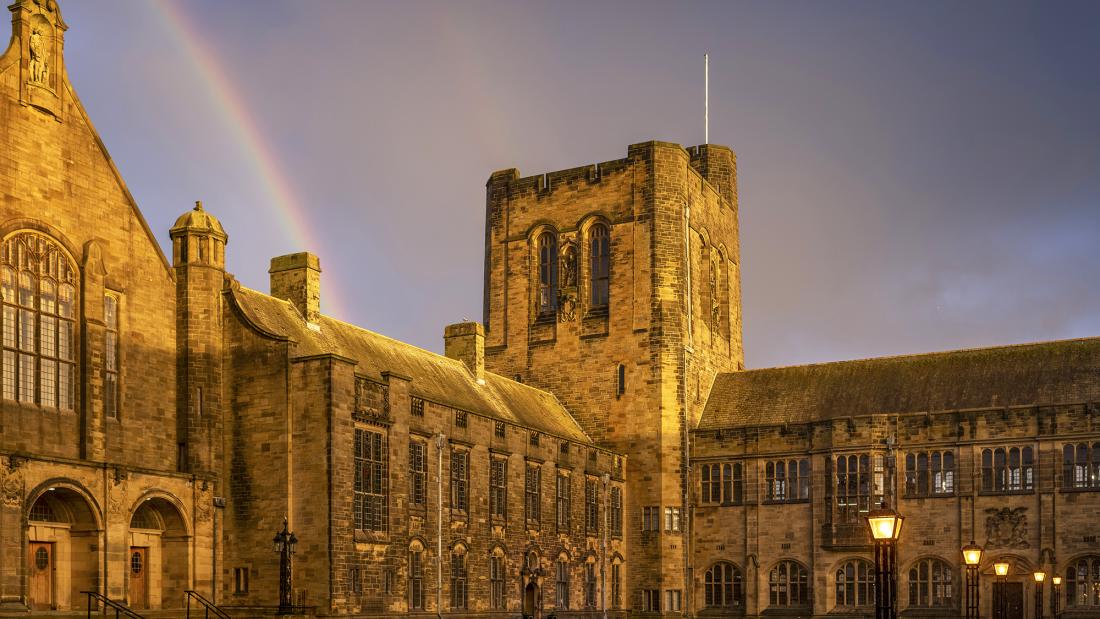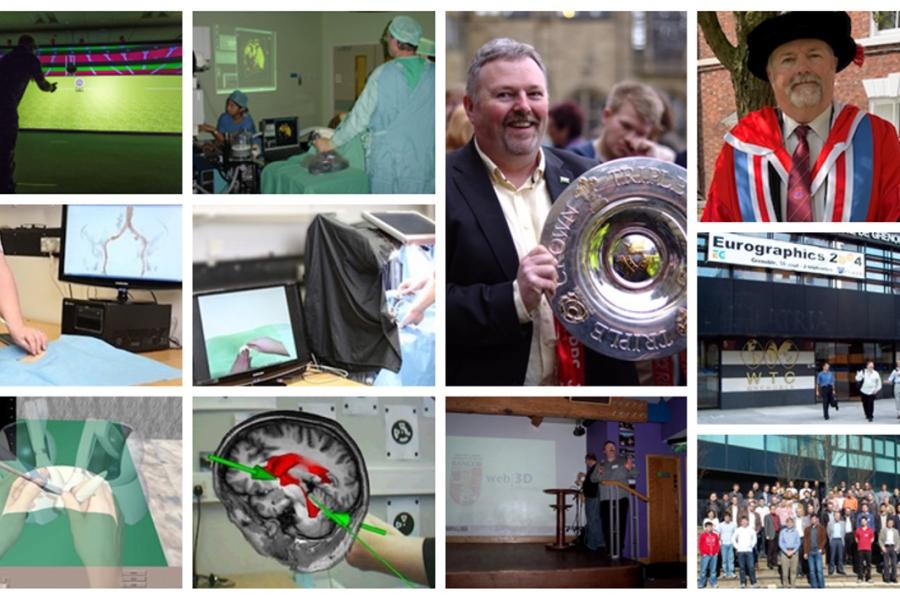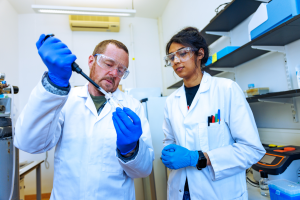Professor Nigel W. John passed away suddenly on October 14th. Our thoughts are with his wife and family. Nigel was a professor at Bangor University, and an active member of the school of Computer Science (as it was known then) between 2003 and 2015, when he took up a chair at the University of Chester. Nigel was a close friend to many academics who work at Bangor, and he will be fondly missed.
Nigel was born on the 7th of October 1963 in Gower Swansea. He went to the University of Bath to study Mathematics and Computer Science, and continued his studies under the close supervision of Professor Phil Willis, submitting a PhD thesis in 1989 entitled “Techniques for Planning Computer Animation”. Nigel was always interested in computer graphics, and proud of the animations that he had created for his PhD work. He published his first paper at the 7th Annual Eurographics UK Chapter conference in March 1989, which started a close relation, and fondness for the Eurographics Association and the UK Chapter of Eurographics (EGUK).
After completing his PhD, Nigel went on to work with AstraZeneca Pharmaceuticals, Silicon Graphics Inc, and joined the Manchester Visualisation Centre, which was then led by Professor Terry Hewitt.
In 2003 Nigel moved to Bangor and become chair of Computing, at the (then named) School of Computer Science. He set up a research group in computer science called High Performance Visualisation and Medical Graphics (HPVMG). Nigel led this research group until he left Bangor in 2015. This group is continuing today, with a slightly adapted and expanded remit, and led by Professor Jonathan C. Roberts. During his time at Bangor, Nigel became acting head of school, for a brief period, and was Director of Research. Nigel helped develop both the research of the group and the careers of the people within it. He recruited and strengthened research skills, at Bangor University, in computer graphics, visualisation, haptics, image processing and virtual reality.
Nigel’s research focused around using computer graphics, virtual reality, and haptic instruments (force-feedback and other tangible devices) to create interactive medical training systems. He collaborated with local hospitals, professors at Imperial College London, and Liverpool to name a few. Nigel’s commitment and developments in medical research were acknowledged in 2006 with Nigel receiving the Satava Award, which is awarded to “an individual or research group demonstrating exceptional commitment to the improvement of healthcare through advanced technology”. Nigel’s work in haptics and medical graphics was groundbreaking and award winning. Nigel and colleagues developed the ImaGINe-S: Imaging Guided Interventional Needle Simulation, a system for training practitioners in certain needle insertion procedures, for which Nigel and co-researchers were awarded the second prize in the Eurographics Dirk Bartz Prize in 2009. Nigel also chaired the Dirk Bartz Prize award committee for several years. His work included Image Guided Interventional Needle simulation, Ultrasound Guided Needle Puncture, 3D volume visualisation in the operating theatre, Augmented Reality for Anatomical Education, Simulating the Seldinger Technique and Virtual Environment for Rugby Skills.
Nigel helped setup and was also a director of the pan-Wales Research Institute of Visal Computing (2007-15), a collaboration between Aberystwyth, Cardiff, and Swansea Universities, which became the start of many such collaborations, in High Performance Computing, and supercomputing across Wales. The legacy of these collaborations continues, including Data analysis, Artificial Intelligence, Visualisation and Visual computing. Nigel was awarded a Churchill Travelling Fellowship in 2013, that enabled him to make an extended research trip to Australia and Singapore, researching and visiting hospitals who were develop virtual medical training devices and educational computer graphics tools.
Nigel’s ongoing commitment to the research community, and involvement with Eurographics continued while at Bangor. He co-chaired the Eurographics 2008 conference held in Crete and played a key role in bringing the annual Eurographics Conference to the UK (first in 2001, when he was in Manchester) but notably in 2011 when the Eurographics conference came to Bangor and was hosted at Venue Cymru in Llandudno, where Professor Roberts led the conference as general chair. Nigel became a Fellow of Eurographics in 2009 and was elected as a Fellow of the Learned Society of Wales (the national academy for arts and sciences) in 2014.
Nigel moved to Chester University in 2015, where he continued being active in Eurographics, and brought the Eurographics Visual Computing for Biology and Medicine (VCBM) workshop series to Chester in 2015. Nigel was awarded a higher doctorate, by the University of Chester, in 2021, which was conferred in 2022.
Nigel was a keen cyclist and a passionate supporter of the Wales rugby union team and Ospreys regional team. He loved pinball, snooker, board games, kite flying and science fiction. He was a keen Petanque player, inviting others to play with him.
Professor Jonathan C. Roberts (professor in visualisation) said “I will miss Nigel. He was not only a wonderful friend, but a cherished research colleague. I knew Nigel initially through attending Eurographics conferences, and he played a pivotal role in influencing my choice to come to Bangor. He was kind and generous, always encouraging of other people, and always wanting to help others develop in their own careers and interests.”
The funeral for Professor Nigel John DSc FEG FLSW will be on Friday 10th November. The committal service will be 2pm at Blacon Crematorium, Chester CH1 5BB for family, close friends, and academic colleagues, followed by a Thanksgiving service from 2:45pm at All Saints Church, 91 Hoole Road, Chester CH2 3HZ with refreshments afterwards.
Family flowers only, donations in honour of Nigel's work as a school governor to Chester Schools Christian Work (https://www.cscw.org.uk/).






